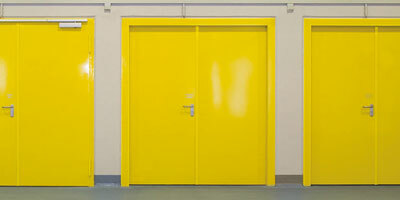
13 Feb 2025
ABC Doors is delighted to announce the opening of a new Scotland hub. The addition of a Scotland location allows for greatly increased flex and agility to support all customers.

15 Jan 2025
Whatever your requirements, durability, security or energy efficiency, our high-quality product offering features uniquely versatile and good-looking door solutions for every scenario.

18 Nov 2024
Often the cost-effective choice, removing the need to employ staff to manage access at the entrance to your site, the access control options available from ABC are customisable, durable and provide reliable operation and a long service life!